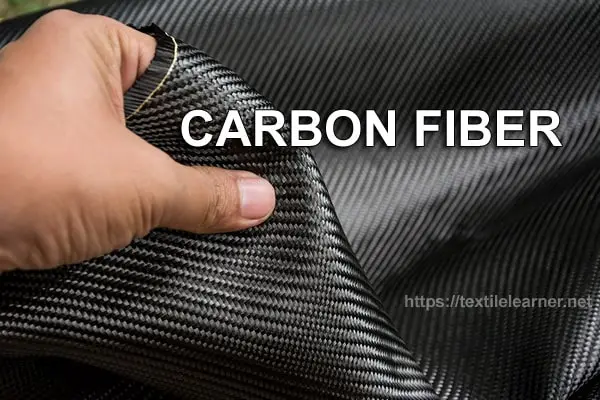Carbon fiber tubes offer high strength-to-weight ratios, corrosion resistance, and fatigue strength that make them ideal materials for civil engineering applications.
As infrastructure projects demand innovative and sustainable solutions, carbon tubes present new opportunities across the field.
This article explores key properties, sources, sizes and uses of carbon fiber tubing in civil construction projects.
Carbon Fiber Bicycle Frame Tubes Provide Inspiration
The cycling industry’s widespread adoption of carbon fiber bicycle frame tubes demonstrated early success.
Carbon fiber bike frames highlighted superb stiffness, strength and vibration dampening while reducing weight over traditional metal frames.
Major manufacturers now offer carbon fiber tubes in a variety of shapes and sizes for custom bicycles.
These bike tube applications provided a lightweight blueprint and carbon fiber tubing manufacturers took notice.

Achieving High Strength with Low Weight
A primary benefit of carbon fiber tubes comes from exceptional strong lightweight carbon fiber tubes.
Strength refers to strain or pressure handling before permanent deformation.
Lightweight stems from a high strength-to-weight ratio exceeding aluminum.
With strength surpassing most steels at 1/5th the weight, civil engineers specify carbon fiber to reduce material needs.
An Eiffel Tower redesigned with carbon fiber would weigh just 34 elephant bulls!
Where Engineers Source Carbon Fiber Tubing
Understanding where to access carbon fiber tubes aids engineers’ adoption for infrastructure projects.
Major industrial suppliers offer where to buy carbon fiber tubes including company names.
Small batch and custom orders also come from composites manufacturers focused on carbon fiber products.
Some firms will create customized tubing to exact specifications.
Sites like Alibaba and Made-in-China provide additional international sourcing options.
Key Properties to Evaluate in Specifying Carbon Fiber Tubes
Engineers characterize materials by properties to match application needs.
For carbon fiber tubes, their properties like strength, stiffness and fatigue resistance matter most.
Tensile strength refers to the maximum stress a tube can withstand before failure making carbon fiber over 10 times stronger than common structural steels.
Stiffness measures how carbon tubes resist bending and deformation.
Carbon also demonstrates excellent fatigue properties across millions of load cycles.
Carbon Tubing Inventory Available for Quick Sale
In addition to customer orders, some distributors maintain inventory of carbon fiber tubes for sale for rapid procurement.
Standard sizes in stock range from 6mm to 300mm in diameter and up to 7m in length.
Keeping common tube dimensions on-hand allows orders to ship next day while engineers finalize custom carbon fiber designs.
This benefits prototyping and early material testing for civil projects on compressed timelines.
Standard and Custom Carbon Fiber Tube Sizing
Carbon fiber tube sizes span small diameters for ultra-light structures to large formats for heavy load applications.
Custom carbon fiber tubes accommodate civil structures like bridge components, building supports and wind turbine blades.
Standard sizes stock 6mm to 400mm diameter tubes from 250mm to 8000mm length.
Custom tubes can reach 700mm diameter in lengths over 12 meters. Layered “overwrapped” designs provide additional strength for high-stress large civil projects.
Carbon Tube Applications Growing Across Civil Engineering
Fiber tubes applications continue growing as infrastructure projects demand strength, limited weight and corrosion resistance.
Bridges and overpasses use carbon tubes in cables, anchorages and as structural building blocks.
Support columns, beams and bracing all benefit from carbon fiber’s durability and vibration absorption.
Carbon tubes also find applications in dams, tunnels, wind turbines and water treatment infrastructure as engineers recognize their advantages.

Contrasting Performance Against Traditional Aluminum
Aluminum sees widespread use across civil construction for its strength, workability and corrosion resistance.
Comparing carbon fiber vs aluminum tubes shows advantages in high-demand applications.
Similar stiffness provides flexibility in replacing aluminum components.
Carbon fiber bests aluminum in strength-to-weight ratio, tension and compression performance.
Aluminum maintains advantages in ductility and conductivity over carbon alternatives.
Engineers weigh tradeoffs to match material performance to individual project needs.
Specialized Manufacturers Provide Fully Custom Tubing
The final category covers engineers requiring completely custom carbon fiber tubing for unique infrastructure builds.
While standard sizes work for many needs, advanced projects may require custom lengths, diameters, resin systems and woven finishes.
Specialized carbon fiber manufacturers like company names deliver made-to-order tubing matching exact specifications.
This allows pushing material performance to new limits as civil infrastructure demands specialized solutions.
Carbon fiber tubes present new opportunities across civil construction and engineering sectors thanks to exceptional strength, fatigue life and vibration dampening.
As projects seek to balance structural integrity with sustainable, lightweight materials, carbon fiber tubing solutions help achieve infrastructure goals.
Engineers find options across standard inventory as well as fully custom order products shaped to exact designs.
With expanding manufacturing and widening applications, carbon tubes become accessible solutions improving infrastructure projects both large and small.







